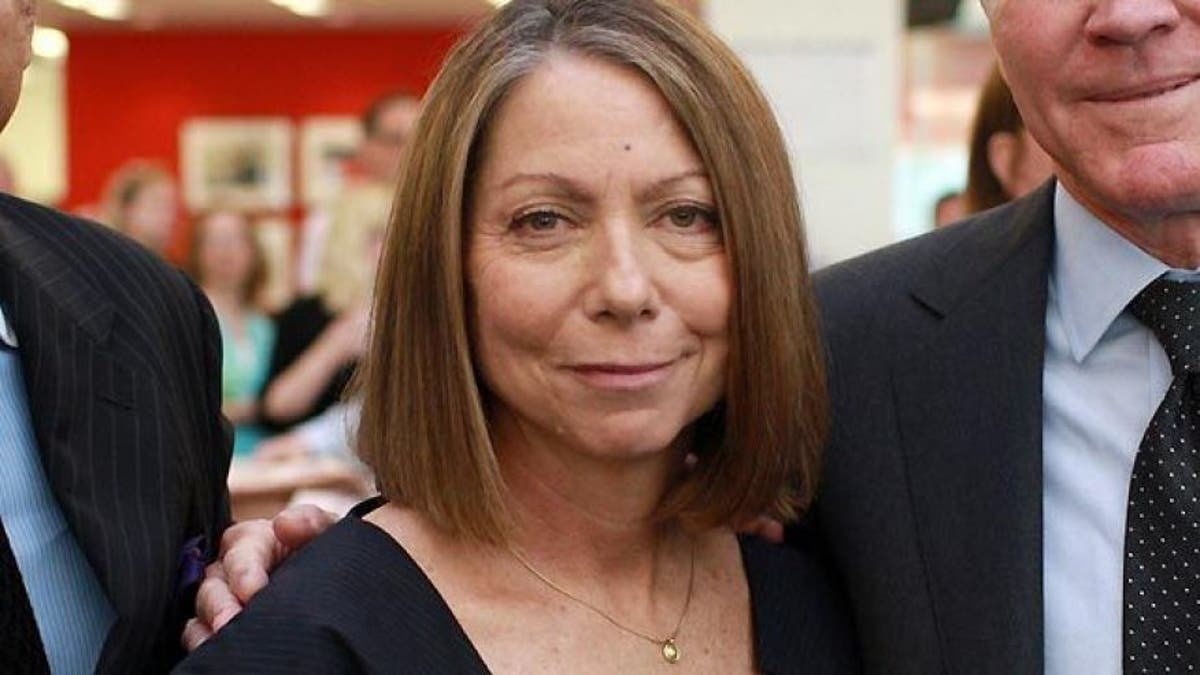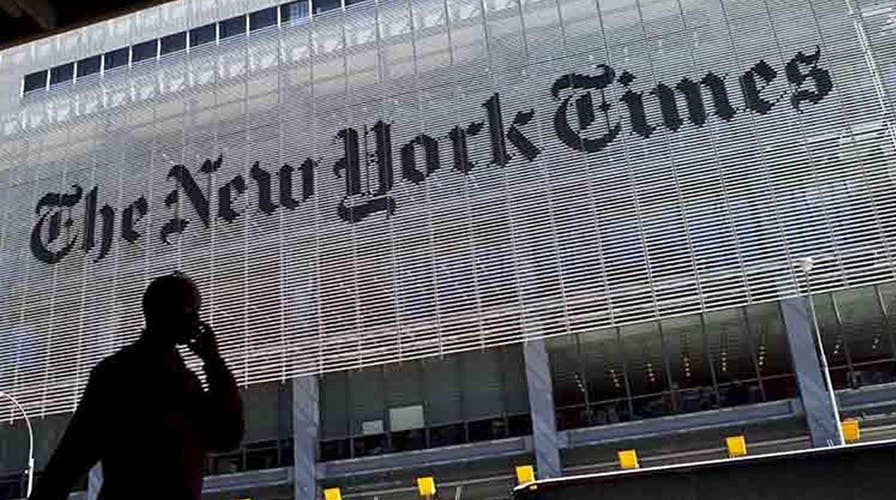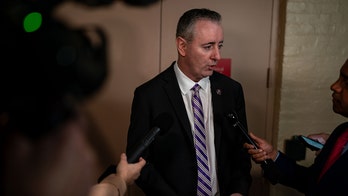Former New York Times editor slams publication as being unmistakably anti-Trump, younger employees throw out standards
Host of 'Mediabuzz' Howard Kurtz says the New York Times’s credibility has been hurt.
A former executive editor of the New York Times says the paper’s news pages, the home of its straight-news coverage, have become “unmistakably anti-Trump.”
Jill Abramson, the veteran journalist who led the newspaper from 2011 to 2014, says the Times has a financial incentive to bash the president and that the imbalance is helping to erode its credibility.
In a soon-to-be published book, “Merchants of Truth,” that casts a skeptical eye on the news business, Abramson defends the Times in some ways but offers some harsh words for her successor, Dean Baquet. And Abramson, who was the paper’s only female executive editor until her firing, invoked Steve Bannon’s slam that in the Trump era the mainstream media have become the “opposition party.”
CLICK HERE TO GET THE FOX NEWS APP
“Though Baquet said publicly he didn’t want the Times to be the opposition party, his news pages were unmistakably anti-Trump,” Abramson writes, adding that she believes the same is true of the Washington Post. “Some headlines contained raw opinion, as did some of the stories that were labeled as news analysis.”
What’s more, she says, citing legendary 20th century publisher Adolph Ochs, “the more anti-Trump the Times was perceived to be, the more it was mistrusted for being biased. Ochs’s vow to cover the news without fear or favor sounded like an impossible promise in such a polarized environment.”
Abramson describes a generational split at the Times, with younger staffers, many of them in digital jobs, favoring an unrestrained assault on the presidency. “The more ‘woke’ staff thought that urgent times called for urgent measures; the dangers of Trump’s presidency obviated the old standards,” she writes.
Trump claims he is keeping the “failing” Times in business—an obvious exaggeration—but the former editor acknowledges a “Trump bump” that saw digital subscriptions during his first six months in office jump by 600,000, to more than 2 million.

Former executive editor of the New York Times Jill Abramson.
“Given its mostly liberal audience, there was an implicit financial reward for the Times in running lots of Trump stories, almost all of them negative: they drove big traffic numbers and, despite the blip of cancellations after the election, inflated subscription orders to levels no one anticipated.”
The Times has long faced accusations of liberal bias, even before Trump got into politics and became its harshest critic. But Abramson’s words carry special weight because she is also a former Times Washington bureau chief and Wall Street Journal correspondent specializing in investigative reporting.
Baquet has said that Trump’s attacks on the press are “out of control” and that it is important to use the word “lie” when the president tells a clear untruth.
In “Merchants of Truth: The Business of News and the Fight for Facts,” Abramson praised as “brave and right” Baquet’s decision to run this headline when Trump abandoned his birtherism attacks on Barack Obama: “Trump Gives Up a Lie But Refuses to Repent.”
Abramson, who had her share of clashes with Baquet when he was her managing editor, sheds light on a 2016 episode when Baquet held off on publishing a story that would have linked the Trump campaign with Russian attempts to influence the election.
Liz Spayd, then the Times public editor, wrote that the paper, which concluded that more evidence was needed, appeared “too timid” in not running the piece, produced by a team that included reporter Eric Lichtblau.
Baquet “seethed” at this scolding, Abramson says, and emailed Lichtblau: “I hope your colleagues rip you a new a*****e.”
Baquet wrote that “the most disturbing thing” about Spayd’s column “was that there was information in it that came from very confidential, really difficult conversations we had about whether or not to publish the back channel information. I guess I’m disappointed that this ended up in print.
“It is hard for a journalist to complain when confidential information goes public. That’s what we do for a living, after all. But I’ll admit that you may find me less than open, less willing to invite debate, the next time we have a hard decision to make.”
Lichtblau soon left the Times for CNN, where he was one of three journalists fired when the network retracted and apologized for a story making uncorroborated accusations against Trump confidante Anthony Scaramucci. And the Times soon abolished the public editor’s column.
Abramson is critical of Trump as well. She calls his “fake news” attacks a “cheap way of trying to undermine the credibility of the Times’s reporting as something to be accepted as truth only by liberals in urban, cosmopolitan areas.”
The Times, which broke the story of Hillary Clinton’s private email server, also “made some bad judgment calls and blew its Clinton coverage out of proportion,” Abramson writes. She says Clinton “was wary of me,” mishandled the scandal and “was secretive to the point of being paranoid.”
Abramson is candid in acknowledging her faults. When then-publisher Arthur Sulzberger Jr. was considering promoting her to the top job, he told her over lunch at Le Bernadin: “Everyone knows there’s a good Jill and a bad Jill. The big question for me is which one we’ll see if you become executive editor.”
She admitted to him that “I could be self-righteous when I felt unheard, I interrupted, I didn’t listen enough.”
It was a heated battle with Baquet that led to her ouster in 2014. He was furious upon learning that she was trying to trying to recruit another top journalist—Abramson says an executive ordered her to keep it secret—who would share the managing editor’s title.
Sulzberger called her in, fired her, and handed her a press release announcing her resignation.
Abramson says she replied: “Arthur, I’ve devoted my entire career to telling the truth, and I won’t agree to this press release. I’m going to say I’ve been fired.”
Her final judgment: “I was a less than stellar manager, but I also had been judged by an unfair double standard applied to many women leaders.”





